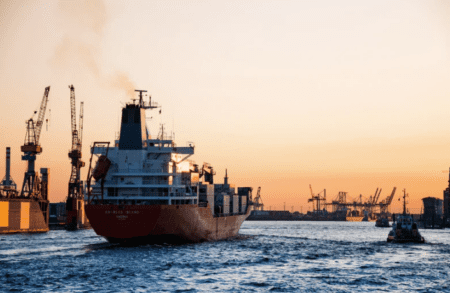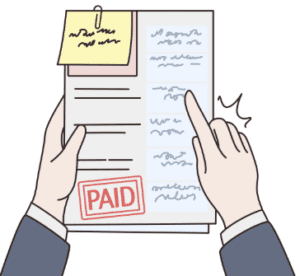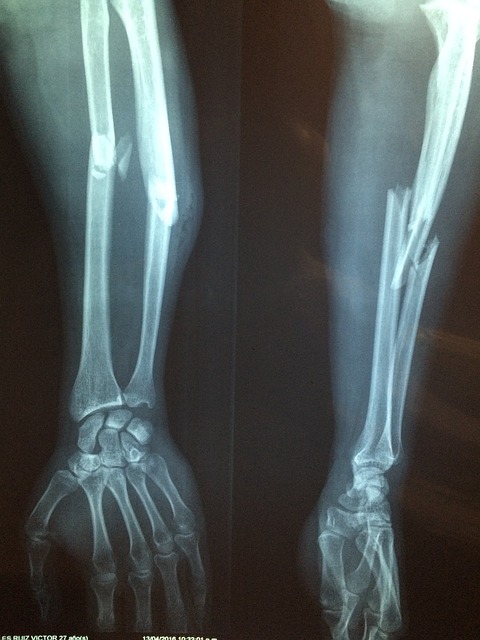Last Updated on March 20, 2025 by Emily Herrington
 If you’re a maritime worker who has been injured on the job, you should know that you’re entitled to receiving several types of benefits under maritime law. Regardless of fault for the injury, maritime workers have access to benefits that help with medical expenses, lost wages, and transportation costs.
If you’re a maritime worker who has been injured on the job, you should know that you’re entitled to receiving several types of benefits under maritime law. Regardless of fault for the injury, maritime workers have access to benefits that help with medical expenses, lost wages, and transportation costs.
These benefits are essentially the maritime worker’s version of state workers compensation benefits. If you were injured in the course of your maritime job, it’s important to know exactly what these benefits entail, and how to receive them.
Maintenance and Cure Benefits
The term “Maintenance and Cure” refers to the payments that cover an injured maritime worker’s medical expenses and daily living expenses. At the base level, maintenance and cure payments are benefits that maritime employers must offer to help you recover while you are out of work because of a maritime accident.
Maintenance Benefits
Maintenance refers to the daily allowance that maritime industry workers can receive for living expenses after a work related injury. This should cover rent, food, and household expenses such as utility bills.
Many maritime employers will offer a small stipend of $15-$30 dollars a day, with the explanation that this maintenance rate has always been the standard for injured workers. However, there is no legal backing of this rate, and employers are meant to provide maintenance at a rate that covers your actual household expenses and living costs.
In the 2001 Hall v. Noble Drilling Services case, the Fifth Circuit Court of Appeals sketched out new standards for maintenance benefits. They determined that maintenance payments should take the following expenses into consideration:
total monthly rent or mortgage payments;
the cost of utilities; and
food expenses.
Be sure to keep receipts, or copies of receipts, for all relevant expenses paid at this time. If your employer is refusing to pay the full amount necessary for you to maintain your life while you are away from your vessel, then you may need those receipts for a maintenance and cure case.
If you stay in the hospital for the complete duration of your recovery, you will likely be unable to collect maintenance benefits (as medical expenses fall under cure benefits).
Cure Benefits
Cure benefits refer to the payments that an employer will make towards a seamen’s medical expenses after a work injury. Vessel owners are responsible for paying ALL of their employees’ reasonable and necessary medical expenses should they become ill or suffer an injury while on the job. This means that your personal health insurance should rarely, if ever, be used – even if your employer tells you that it’s the best option.
Cure benefits will cover most medical costs including:
medical appointments
hospital bills;
emergency care;
surgery;
diagnostic tests;
prescriptions;
nursing services and in-home care; and
physical therapy.
Injured seamen are entitled to cure benefits until they can return to work or until their doctor declares that they have reached “maximum medical cure.”
Maximum Medical Improvement
Employers are legally required to pay maintenance and cure until you have reached maximum medical improvement. This means one of two things:
Your condition will not improve with further medical treatment because you are fully recovered.
Your condition will not improve with further medical treatment because it is a permanent or long lasting condition.
A seaman injured on the job is entitled to receive maintenance and cure payments over the entire course of their recovery. If an employer refuses to offer maintenance and cure benefits after a seaman’s injury, they may have to pay punitive damages.
In this case, a maritime lawyer can help throughout the maintenance and benefits claims process; as well as the Jones Act claims process, if the injured seaman is able to prove negligence by the employer.
Transportation Expenses
When seamen are injured in a maritime accident, maritime law states that all transportation costs related to the injury must be covered. This means that if a sick or injured seaman requires a ride to shore after an injury, they shouldn’t have to pay a cent. Transportation to appointments related to medical care should also be covered.
Common types of transportation costs are:
airlift;
ambulance services; and
fuel cost for gas to doctor’s appointments related to the injury.
Unearned Contractual Wages
Workers are also entitled to unearned contractual wages. These are the wages the seaman would have earned on the voyage had he or she not been injured and was able to finish the trip. The terms for unearned wages and what constitutes that particular ships “voyage,” is written out in the seaman’s employment contract and varies for each company.
Employers often try to minimize liability and therefore shorten the period of unearned wages in their employee contracts. For instance, sometimes fishing vessel owners will shorten a contract to only a partial fishing season and then ask the fisherman to renew their contact several times throughout the season. Should the worker suffer injury, the ship owners will only be liable until the pre-determined contract period ends.
Options for Additional Benefits
In many cases, the above benefits are simply not enough to sustain seamen and their families should they sustain serious injuries. For example, if an injured seaman is no longer able to collect maintenance and cure benefits because of a permanent injury, they should be compensated for past, present, and future loss of work.
Fortunately, injured workers do have the right to pursue this type of compensation under the Jones Act. A Jones Act claim will allow you to collect compensation for your long-term medical care, a lifetime of lost wages, and disability. An experienced maritime lawyer can take a look at your case and see if the above benefits are most fitting for you, or if you have the legal right to pursue further damages.
Hiring an Experienced Maritime Lawyer To Look Over Your Benefits After a Workplace Injury
We encourage all injured seamen to look into all possible forms of recompense after a work injury. There are laws in place for all types of workers suffering all types of injuries; from harbor workers to offshore workers, and from temporary to long-term injuries. A maritime personal injury lawyer can help you figure out what laws apply to your situation.
Contact us at The Young firm for a free consultation, and let us see how we might be able to assist you in securing additional benefits. Call 504-680-4100 today.
More Maintenance and Cure Resources:
- Three Key Differences Between Maintenance and Cure Payments & Advances
- Maritime Jobs that Satisfy Eligibility for Maintenance and Cure Benefits
- Maintenance and Cure vs. Injured Workers’ Compensation
- Punitive damages under maintenance and cure
- Can I get repaid if I pay for my own doctor under maintenance and cure?




